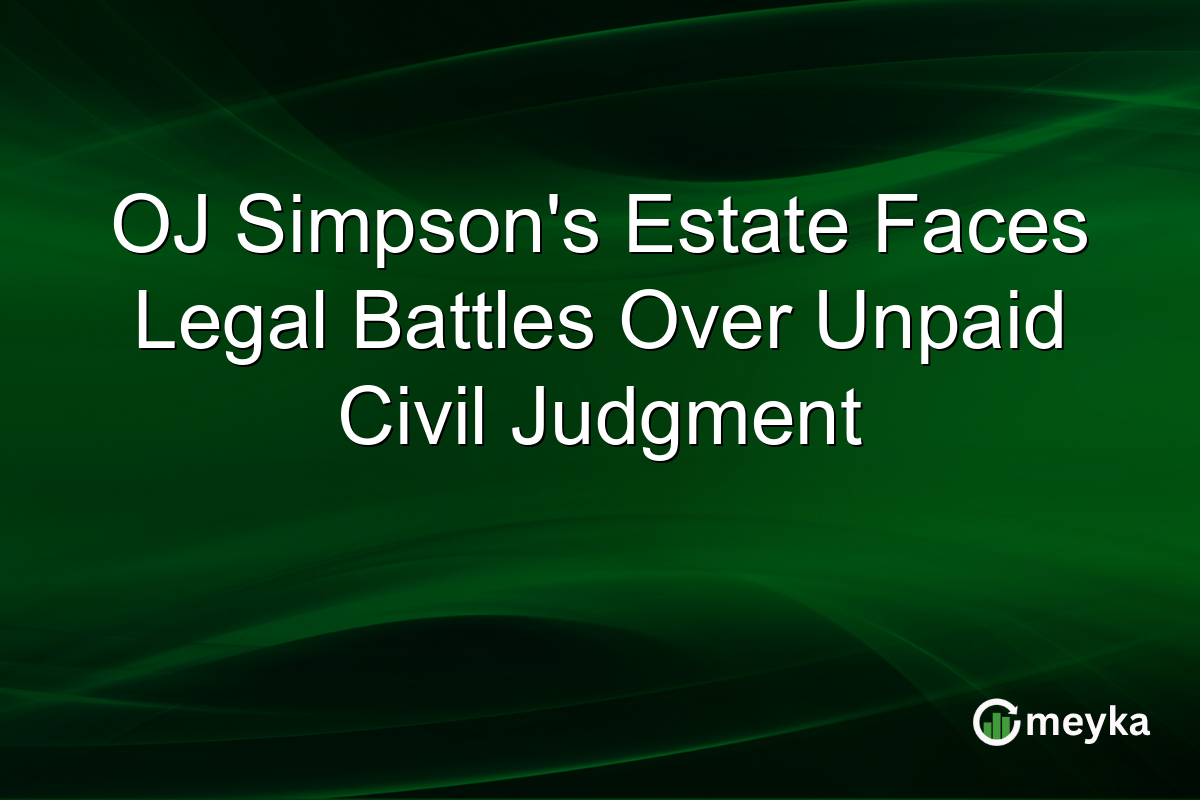OJ Simpson’s Estate Faces Legal Battles Over Unpaid Civil Judgment
O.J. Simpson’s death in April 2024 reignited legal discussions surrounding his estate. His financial obligations, particularly the $33.5 million civil judgment from 1997, have taken center stage. This judgment was awarded to the families of Nicole Brown Simpson and Ron Goldman, following their respective wrongful death claims. With such a significant amount unsettled, Simpson’s estate now faces intense legal scrutiny, as the beneficiaries seek restitution from his remaining assets.
O.J. Simpson’s Civil Judgment: A History
The $33.5 million civil judgment stems from a 1997 trial where O.J. Simpson was found liable for the deaths of Nicole Brown Simpson and Ron Goldman. While acquitted of murder in criminal court, this civil case brought a considerable financial obligation. Over the years, Simpson’s payments towards the judgment were minimal, leading to increased interest and ongoing disputes. According to legal sources, the interest accrued has magnified the initial amount owed. Now, the families are laser-focused on securing funds from Simpson’s estate, turning to various legal maneuvers. These efforts aim to implement the judgment issued decades ago [source: WSLS].
Ongoing Legal Battles and Estate Litigation
The pursuit of Simpson’s remaining assets has turned the spotlight on estate litigation tactics. The Brown and Goldman families have intensified efforts to claim any available wealth. Legal experts highlight the potential challenges in executing these claims, especially if assets were concealed or protected, a tactic often used by those facing large judgments. Various legal actions are unfolding, aiming to locate and seize any assets Simpson may have shielded. This complex process often involves tracing financial transactions and challenging asset protection strategies previously employed. This persistence displays the families’ determination to enforce the judgment, despite significant legal hurdles.
Legal Implications for Simpsons’ Estate
For the executors managing Simpson’s estate, these legal battles introduce significant complications. Handling such a contested estate requires navigating through the intricacies of asset distribution while balancing outstanding obligations. The ongoing litigation could set precedents for how future estate disputes might be handled, especially regarding unresolved civil judgments. As these cases proceed, they may offer insights into estate management under similar circumstances. This evolving legal landscape demonstrates the complexities inherent in high-profile estate litigation.
Final Thoughts
O.J. Simpson’s passing did not close the chapter on his controversial legal and financial history. The pursuit of the unpaid $33.5 million judgment continues to engage both legal practitioners and the families involved. As the estate faces scrutiny, these proceedings highlight the challenges in settling old debts. Looking forward, how Simpson’s estate is managed could influence future legal strategies in civil judgment collections. Ultimately, this situation underlines the importance of addressing financial obligations promptly, regardless of the individual’s public profile.
FAQs
The civil judgment awarded in 1997 held O.J. Simpson responsible for the wrongful deaths of Nicole Brown Simpson and Ron Goldman, requiring him to pay $33.5 million to their families.
Simpson’s estate faces legal challenges because the $33.5 million civil judgment remains largely unpaid. The families of Nicole Brown Simpson and Ron Goldman are legally pursuing the remaining assets to satisfy this obligation.
Simpson’s estate litigation could serve as a precedent for handling similar cases where significant civil judgments remain unpaid. It highlights the complexities of estate management amid unresolved legal claims.
Disclaimer:
This is for information only, not financial advice. Always do your research.






